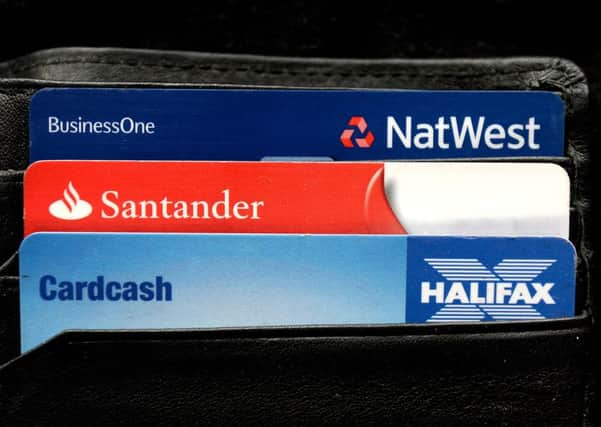Bank reforms: How will they affect you and do they go far enough?


The Competition and Markets Authority (CMA) unveiled a package of measures which it said would “shake up the sector for years to come”, by helping customers to shop around to get a better deal.
It will require banks to speed up advances in technology by putting “open banking” in place by early 2018, and to publish “trustworthy and objective information on quality of service” on their websites.
Advertisement
Hide AdAdvertisement
Hide AdBut consumers’ groups said the proposals did not go far enough.
Alex Neill, director of policy and campaigns at Which?, said: “It is questionable whether these measures will be enough, not only to increase competition but also to ensure banks deliver a better service for their customers.”
He said banks would continue to be allowed to charge “exorbitant fees for so called unauthorised overdrafts, rather than protect those customers that have been identified as among the most vulnerable”.
Which? had complained previously that customers slipping into an unarranged overdraft could be charged several times the amount levied by even the most expensive that payday lenders.
Advertisement
Hide AdAdvertisement
Hide AdPaul Pester, chief executive of the smaller TSB Bank, which was sold off by Lloyds, said the watchdog had “played right into the hands” of the biggest banks.
He said: “Banking must be the only industry that doesn’t tell its customers how much they are paying for their services. Consumers need to be equipped with the necessary tools in order to make informed choices about the best products and services for their needs.”
Under the new proposals, individuals and small businesses will be able to manage the accounts they hold with several different providers on a single app.
This could mean that rather than having to constantly check their accounts to avoid going in the red, money could be moved automatically to another bank if an account is about to go overdrawn.
Advertisement
Hide AdAdvertisement
Hide AdThe CMA said “many people are paying more than they should and are not benefiting from new services”.
The measures also include requiring banks to send alerts to customers going into an unarranged overdraft and set a cap on unarranged overdraft charges.
But banks, which collectively make £1.2 billion a year from such charges, will be able to set their own cap, rather than having one imposed on them.
The CMA will require banks to:
• Publish trustworthy and objective information on quality of service on their websites and in branches for customers to see. A core measure of how banks shape up will be whether customers would be willing to recommend their bank to friends, family and colleagues.
Advertisement
Hide AdAdvertisement
Hide Ad• Send out suitable “prompts” such as on the closure of a local branch or an increase in charges, to remind their customers to review whether they are getting the best value and switch banks if not. Unlike many other financial products such as home insurance, current accounts do not have annual renewal dates to act as natural reminders for customers to compare deals.
• Send alerts to customers going into unarranged overdraft, and inform them of a grace period, to avoid charges. Banks will also have to set a monthly cap on unarranged charges, and tell their customers about it. Banks make £1.2 billion a year from unarranged overdraft charges, which have been described as a “cash cow” for banks by commentators.
• Provide financial backing and technical support to independent charity Nesta to make it easier for small businesses to get a better deal. The CMA found small businesses lack tools providing detailed information about bank charges, service quality and credit availability. A range of measures targeted at small businesses will include a loan eligibility tool.